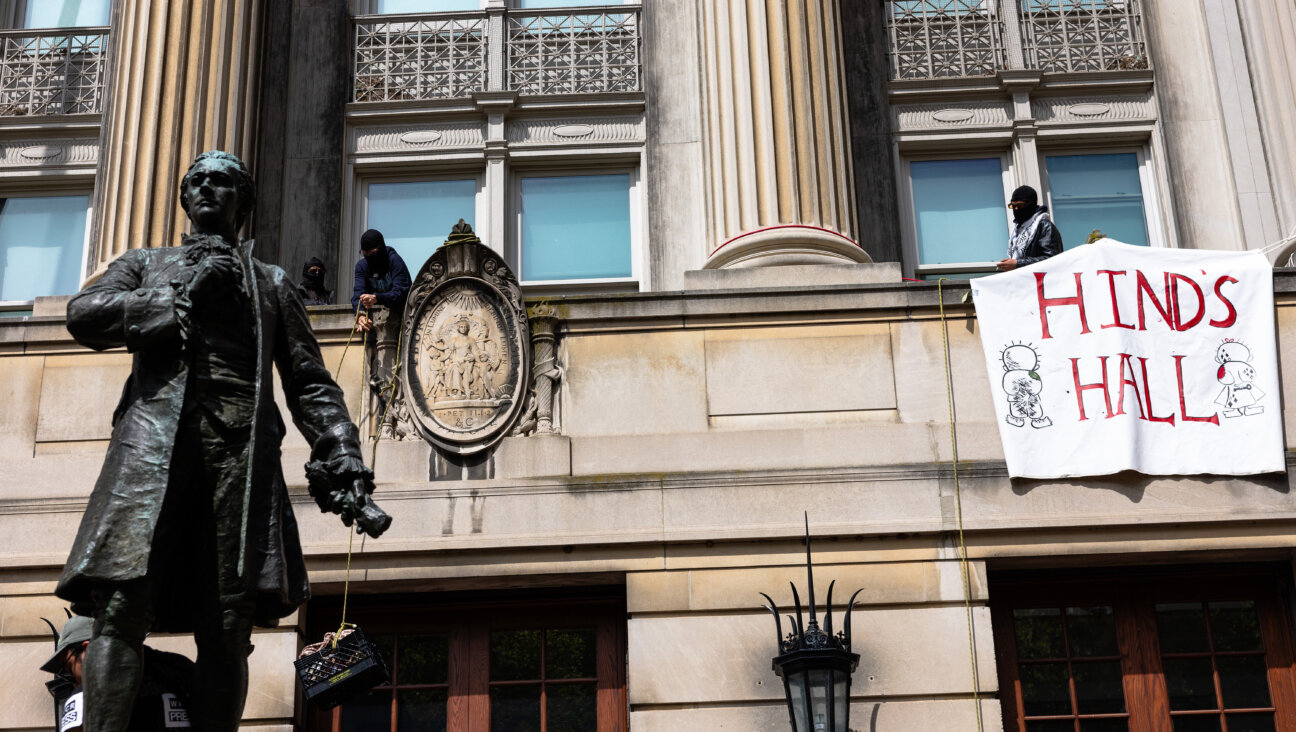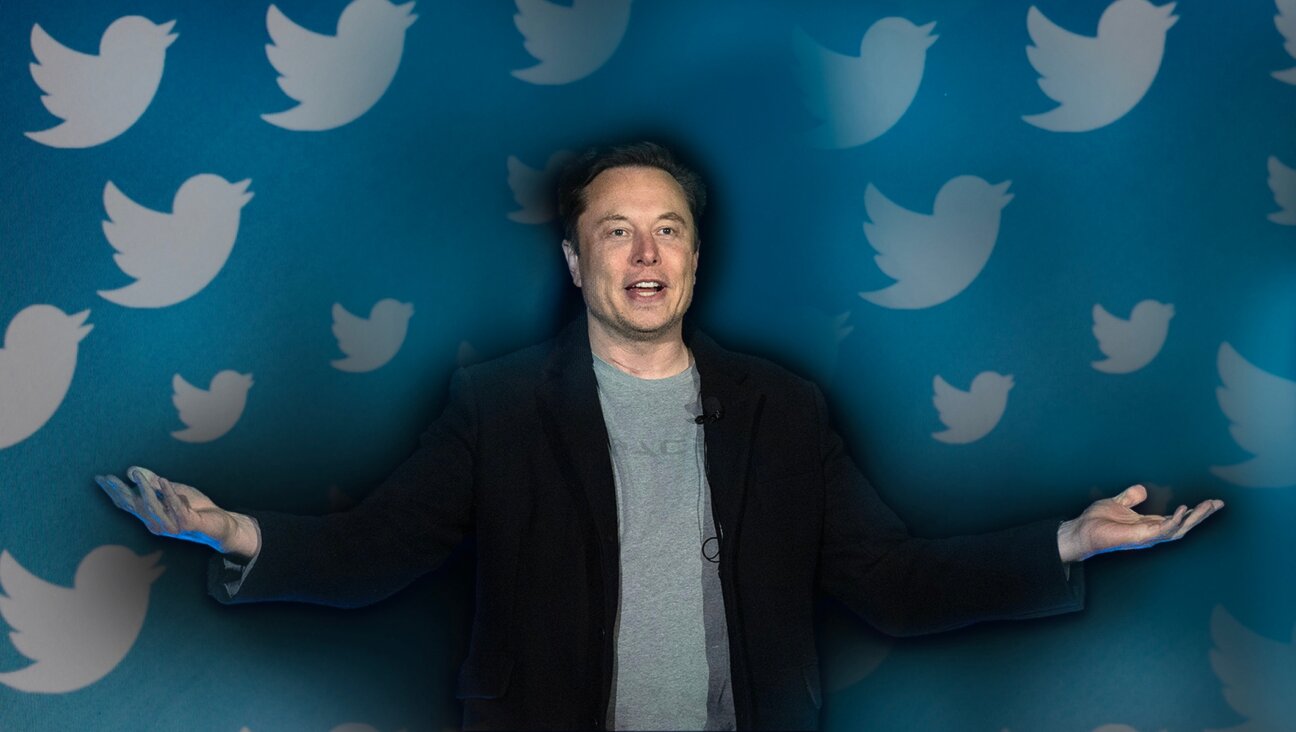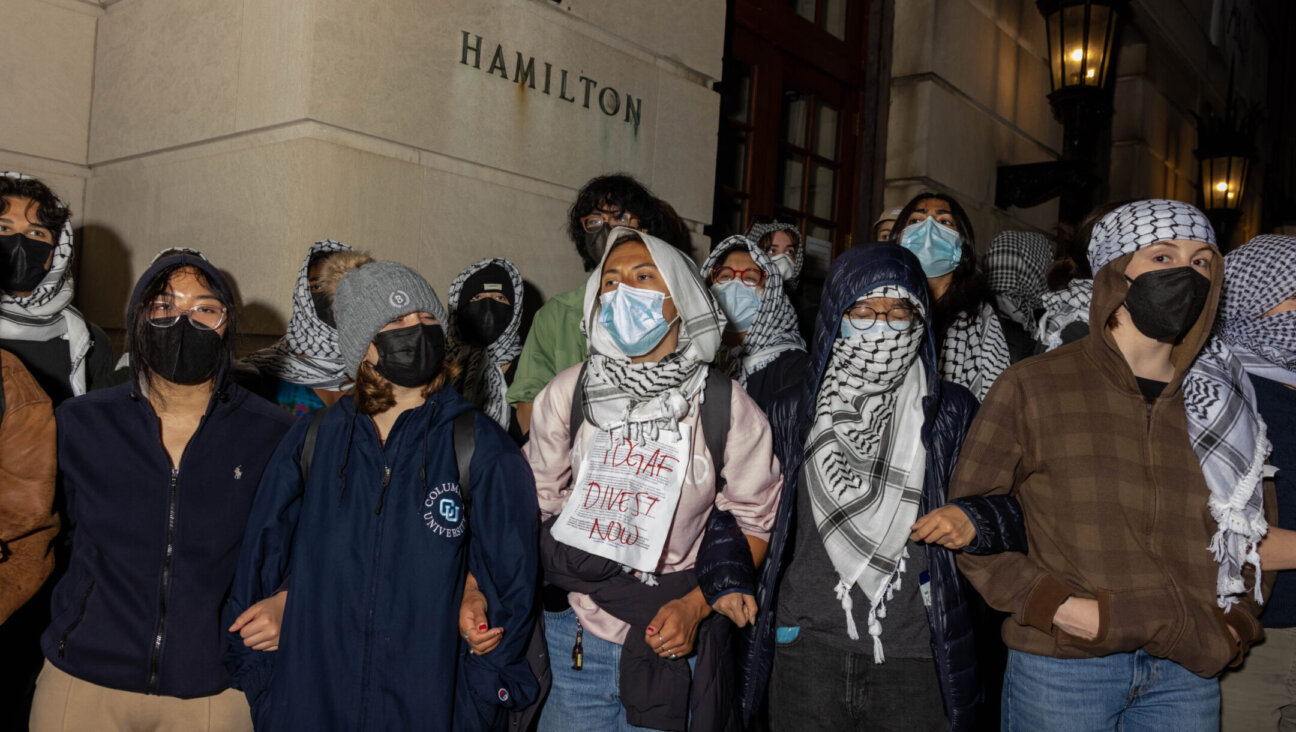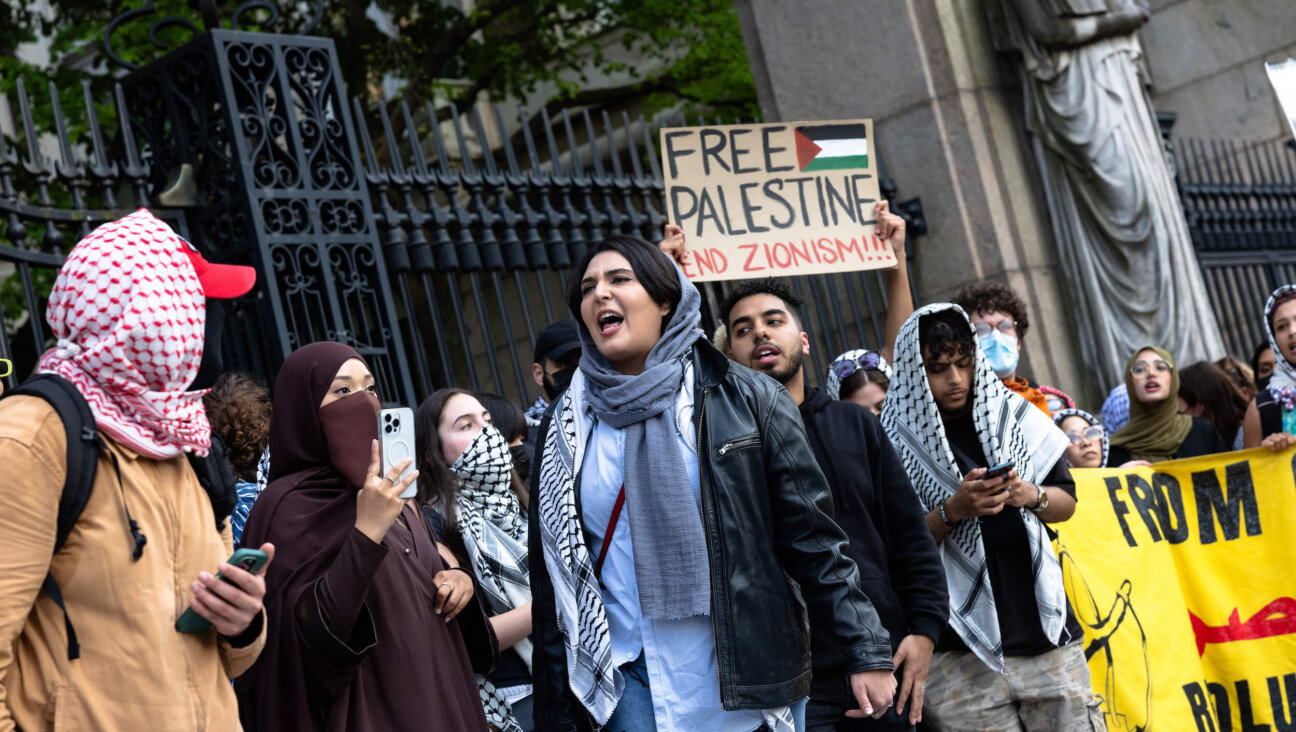Biden and Netanyahu meet for the first time this year, signaling friendship amid disagreements
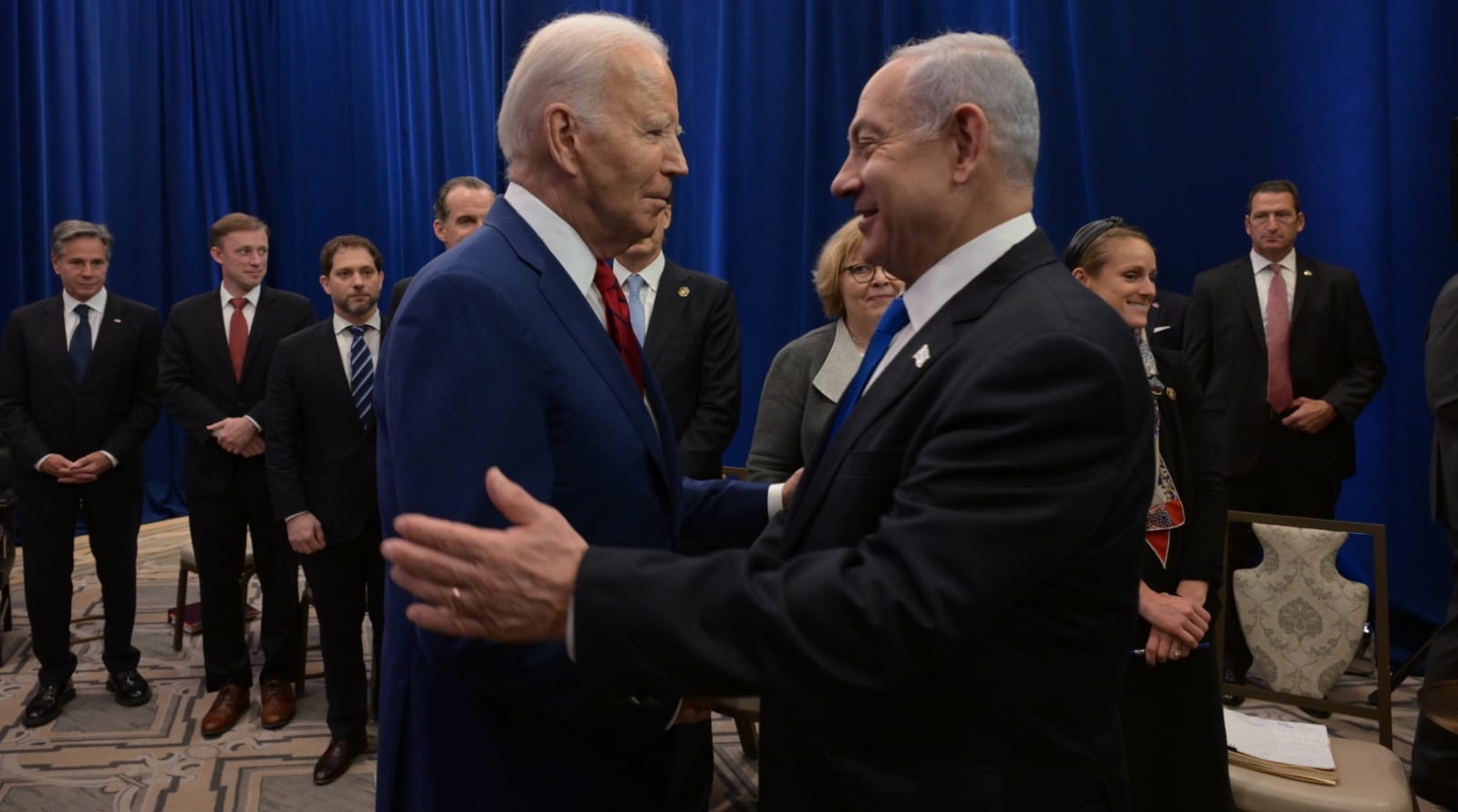
President Joe Biden meets with Israeli Prime Minister Benjamin Netanyahu during the United Nations General Assembly in New York, Sept. 20, 2023. (Avi Ohayon/ Israel Government Press Office)
(JTA) — After months of icy relations, President Joe Biden and Israeli Prime Minister Benjamin Netanyahu met face-to-face for the first time since Netanyahu’s return to office late last year — with both appearing eager to convey that the U.S.-Israel alliance remains on solid footing despite their disagreements.
The two leaders have been at odds for the better part of a year over a range of issues — from Netanyahu’s effort to weaken the Israeli court system to his far-right governing partners to the Biden administration’s attempts to reenter an agreement with Iran. Biden has demurred on inviting Netanyahu to the White House, and the nine months during which the men did not meet is the longest any Israeli prime minister has waited for a presidential meeting in 50 years. Earlier this summer, Biden invited Israeli President Isaac Herzog to Washington, D.C., a gesture seen as a snub of Netanyahu.
The meeting also took place as hundreds of people, led by Israeli expatriates, gathered to protest Netanyahu and his judicial overhaul. The protesters, who are linked to a larger protest movement in Israel, say the legislation will gut the Israeli Supreme Court and erode Israel’s democracy — a position Biden has echoed repeatedly, including at Wednesday’s meeting.
But in a press conference on Wednesday on the sidelines of the United Nations General Assembly in New York City, the president and prime minister both broadcast an image of conviviality and stressed points of agreement despite the notes of tension. The two leaders joked with each other, each mentioning their decades-long relationship, which dates back to Biden’s time as a Democratic senator and Netanyahu’s term as Israel’s U.N. ambassador in the 1980s.
“Joe, we’ve been friends for over 40 years, and our friendship goes a long way,” Netanyahu said. “And can take us a long way.”
Biden and Netanyahu met privately following the press conference, and Netanyahu will address the U.N. General Assembly on Friday.
On one key issue, Biden and Netanyahu appear to be relatively aligned: the prospect for a U.S.-brokered peace treaty between Israel and Saudi Arabia. The prospects of a Saudi-Israel deal have brightened in recent weeks as Biden brokered an agreement earlier this month, at the G-20 summit of industrial nations in India, to forge a trade corridor between India and Europe that would include hubs in Saudi Arabia and Israel.
At the press conference, Netanyahu said a peace agreement with Saudi Arabia was likely while Biden is president. Biden’s first term will conclude in January 2025; he is running for reelection.
“I think that under your leadership was president, we can forge a historic peace between Israel and Saudi Arabia,” Netanyahu said. “I think such a piece would go a long way first to advance the end of the Arab Israeli conflict, achieve reconciliation between the Islamic world and the Jewish state and advance a genuine peace between Israel and the Palestinians.”
Biden agreed. “If ten years ago we were talking about normalization with Saudi Arabia, we’d be speaking to each other like, ‘Who’s been drinking what?” he said.
Biden also mentioned the initiative in his speech to the General Assembly on Tuesday, saying the trade corridor would “spur opportunities and investment across two continents.”
“This is part of our effort to build a more sustainable, integrated Middle East,” Biden said in his speech. “It demonstrates how Israel’s greater normalization and economic connection with its neighbors is delivering positive and practical impacts even as we continue to work tirelessly to support a just and lasting peace between he Israelis and Palestinians — two states for two peoples.”
Netanyahu has supported such a trade route for decades, and appeared elated that Biden was placing the proposed corridor front-and-center in U.S. diplomacy. “Such a corridor will will make Israel important hub and a highway of unprecedented prosperity,” he told Biden.
Saudi Arabia’s leaders have been less bullish than Israel or the United States on the prospect of a deal, but have signaled a degree of enthusiasm. One sign of that positivity was a conference they helped convene on the sidelines of the United Nations to revive sustained Israeli-Palestinian negotiations, which haven’t occurred for nearly a decade, and which Saudi leaders say would be critical to advancing peace between their country and Israel.
Despite their mutual optimism about an accord with Saudi Arabia, the press conference was replete with evidence of the two leaders’ disagreements over Israel’s democratic trajectory.
“We’re going to discuss some of the hard issues,” Biden said. “That is, the wholly democratic values that lie at the heart of our relationship, including checks and balances in our systems.”
Netanyahu said he was intent on preserving Israel’s democracy. “I want to reassure here before you, Mr. President, that one thing is certain, and one thing will never change. And that is Israel’s commitment to democracy,” he said. “We will continue to uphold the values that both our proud democracies cherish.”
Both leaders also mentioned Iran before they closed their meeting to media, but did not on seem to be particularly at odds when it came to that issue. In recent days, Biden has drawn criticism from American foreign policy hawks for a prisoner exchange he brokered with Iran that also released money for humanitarian assistance to Iran.
Biden said their discussion would include “ensuring that Iran never never acquires a nuclear weapon. Because even though we have some differences, my commitment to Israel, you know, is ironclad.”
“I appreciate Mr. President, your continuous commitment to prevent Iran from achieving nuclear weapons capability,” Netanyahu said. “That’s critical.”
This article originally appeared on JTA.org.

I hope you appreciated this article. Before you go, I’d like to ask you to please support the Forward’s award-winning, nonprofit journalism during this critical time.
Now more than ever, American Jews need independent news they can trust, with reporting driven by truth, not ideology. We serve you, not any ideological agenda.
At a time when other newsrooms are closing or cutting back, the Forward has removed its paywall and invested additional resources to report on the ground from Israel and around the U.S. on the impact of the war, rising antisemitism and the protests on college campuses.
Readers like you make it all possible. Support our work by becoming a Forward Member and connect with our journalism and your community.
Make a gift of any size and become a Forward member today. You’ll support our mission to tell the American Jewish story fully and fairly.
— Rachel Fishman Feddersen, Publisher and CEO
Join our mission to tell the Jewish story fully and fairly.








